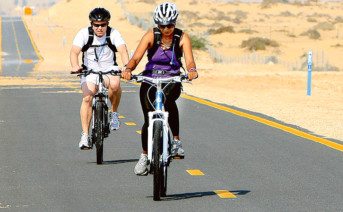
For the past couple of years, bicycle accidents and deaths have been on the rise. As morbid as this sounds, we have been reminded more than once that the roads in the UAE are not bicycle friendly. The growing cycling community in the country have created many campaigns advocating for a safer environment. The Roads and Traffic Authority (RTA) responded by creating only 100 km worth of training tracks as seen in Al Qudra and Nad El Sheba cycle path. Although this is an improvement as opposed to not having any specific areas for the proposed activity, however, we forget about the labourers who ride bicycles as their only mode of transport. Therefore, suggesting that they use other forms of public transport or getting a driver’s license is not a viable solution.
Public transport such as buses or the Metro can only take them so far and to certain major areas within the city. In addition, the process of getting a driver’s license requires a large sum of money, in which most, if not all labourers would rather send or save for their families back home. Also, buying a new or even a used car is not an efficient option, especially if you keep the fuel prices, amongst other things in mind.
The UAE Federal Law No. 21 of 1995, and Ministerial Order No. 130 of 1997 states that cyclists should ride on the right side of the road and should use cycle tracks when available, but they are not allowed on footpaths or main roads. So what could anyone who wants or can only use a bicycle do when there aren’t any designated paths for them on main roads? The only solution is to adopt and implement a wide system of cycling lanes that connects with each other within each emirate. With this in mind, the RTA should look into the systems used in other countries such as Norway and the Netherlands, who have already instigated a fully functioning cycling infrastructure. Apart from this, it is also vital to spread awareness amongst other motorists to ensure that they are aware of their surroundings when driving and that they understand the severity of this issue.
The Gulf Traffic Week campaign aims to reduce accidents and to encourage responsible road etiquettes — why not include bicycle safety to this campaign? While this plan will require a collaborative effort from all residents, in the end, it will be worth it. The UAE is considered as one of the safest countries in the Middle East, and it would only make sense that its roads should represent this title as well.
— The reader is an Emirati journalism student based in Sharjah.










